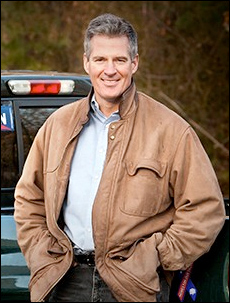Pennsylvania
As expected, Rep. Allyson Schwartz (D-PA-13) yesterday announced that she will challenge Pennsylvania Gov. Tom Corbett (R), but the opposite situation may be happening in Iowa. Rep. Steve King (R-IA-4), who is also expected to run statewide, made some surprising statements suggesting that he is not committed to a run for his state’s open US Senate seat.
Rep. Schwartz has been viewed as a probable statewide candidate since before last November’s election. It was originally believed that she would match up with Sen. Pat Toomey (R) in 2016, but when rumors surfaced pairing her with Gov. Corbett she did not dissuade the talk. With her formal announcement yesterday, Schwartz is now an official gubernatorial candidate and her safe Democratic congressional seat will yield a highly competitive party primary early next year.
Gov. Corbett’s favorability ratings have been poor during the past several months, and that provides a clear indication of vulnerability for next year. But, Schwartz is unlikely to have a clear path to the Democratic nomination. Already in the race is state Department of Revenue director Tom Wolf. Poised to enter is state Treasurer Rob McCord. Former Rep. Joe Sestak (D-PA-7), who held Sen. Toomey to a 51-49 percent victory margin in 2010, is said to be a potential gubernatorial candidate.
Iowa
Like Schwartz, King has been viewed as the presumptive Republican nominee to vie for retiring Sen. Tom Harkin’s (D) seat ever since fellow GOP Rep. Tom Latham (R-IA-3) announced that he would not run statewide. Democratic Rep. Bruce Braley (D-IA-1) is already an announced senatorial candidate. Statements King made this weekend, however, suggest he may be leaning against such a run.
Continue reading >




